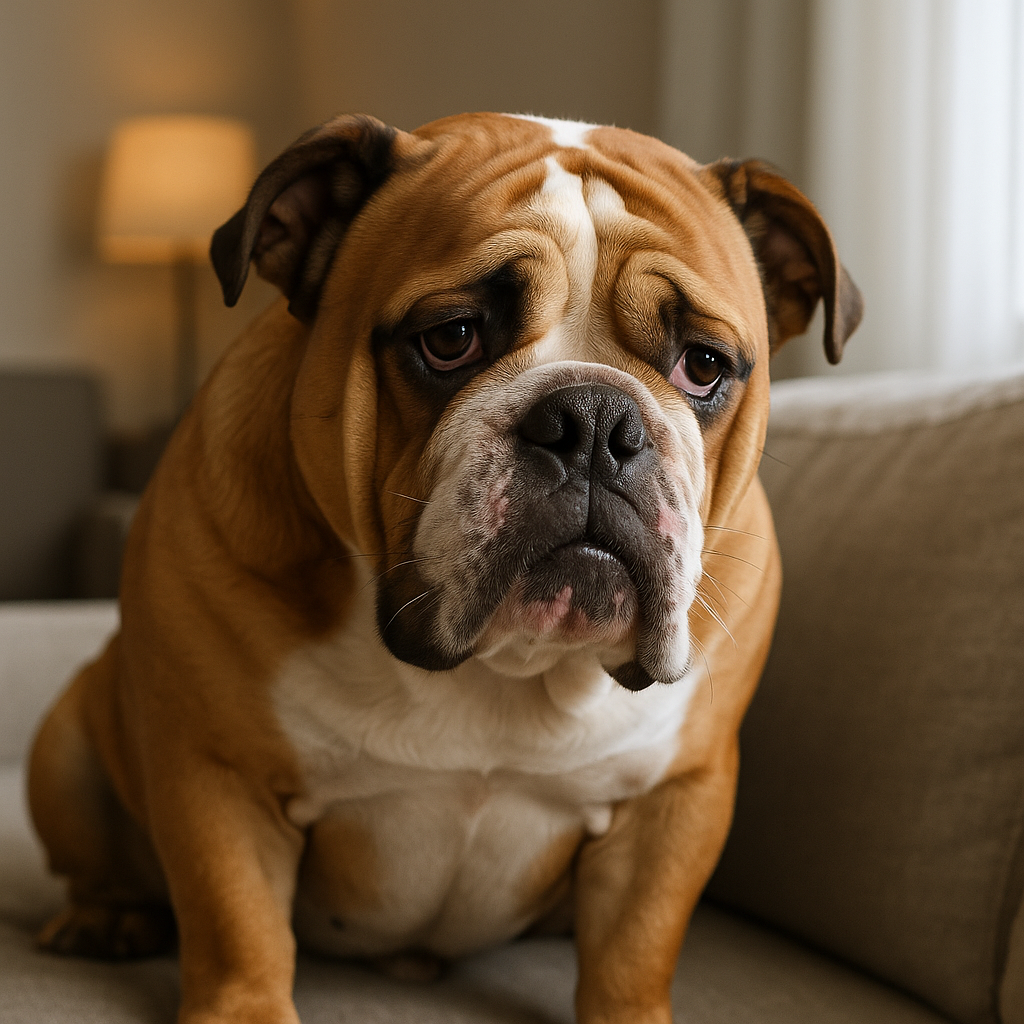Separation anxiety is one of the most common behavioral challenges faced by bulldog owners. Known for their affectionate temperament and loyal personalities, bulldogs often become deeply attached to their families. They enjoy constant companionship, and while this devotion is one of the reasons people love them, it also makes them particularly prone to anxiety when left alone. A bulldog experiencing separation anxiety may bark excessively, whine, pant, pace, chew furniture, attempt to escape, or even develop physical symptoms like vomiting and diarrhea. These behaviors are not signs of disobedience but rather expressions of stress. Understanding how to prevent and manage this issue is essential for protecting your bulldog’s emotional well-being and ensuring peace at home.
The foundation of managing separation anxiety is gradually teaching your bulldog that being alone is safe and temporary. Ideally, this training begins in puppyhood, but it can also be introduced to adult dogs. Start with very short absences. Step out of the room for a minute or two, return calmly without fuss, and slowly increase the duration over days and weeks. When leaving, avoid emotional goodbyes, and when returning, resist the urge to shower them with excitement. Both of these reactions signal to your bulldog that your absence is a big deal, which reinforces their anxiety. Instead, practice neutrality to normalize comings and goings.
Routine is another powerful tool for reducing anxiety. Bulldogs thrive on predictability. When meals, walks, and rest times happen consistently, your dog feels more secure because they know what to expect. Before leaving the house, engage your bulldog in a calming activity like a short walk, a light play session, or scent-based enrichment. This helps release energy and puts them in a more relaxed state, making it easier for them to settle once you’re gone.
Interactive toys can also make a significant difference. Bulldogs are highly food-motivated, which makes puzzle feeders, treat-dispensing balls, or frozen KONG toys particularly effective. Fill these with healthy foods such as wet dog food, pumpkin purée, or plain unsweetened yogurt and freeze them. These toys not only keep your bulldog entertained but also create a positive association with your departure. It is important, however, to reserve these toys only for times when you leave so they become a special treat linked to your absence.
Creating a safe space for your bulldog can further reduce stress. Some dogs feel calmer in a designated area such as a cozy room with their bed, toys, and water. Others may prefer a crate if introduced positively and never used as punishment. The goal is to provide an environment where your bulldog feels secure and relaxed. Observe your dog’s behavior to determine what works best—some bulldogs appreciate a small, enclosed sanctuary, while others prefer more open space.
Sound and scent can also play a role in easing anxiety. Leaving a television or radio on at low volume, playing soft classical music, or using white noise machines can help mask outside sounds that might trigger barking. Some owners find success with recordings of their own voices or with pheromone diffusers that mimic natural calming scents produced by mother dogs. These subtle environmental changes can help bulldogs feel less alone.
In cases of severe separation anxiety, working with a professional trainer or canine behaviorist is highly recommended. These experts can design a desensitization and counter-conditioning plan tailored to your bulldog. The process usually involves exposing your dog to very short absences and gradually building tolerance over time. While this approach requires patience and consistency, it is one of the most effective long-term solutions.
Exercise also plays an important role. Bulldogs are not the most athletic breed, but they still need daily activity. A bulldog that is physically and mentally stimulated will be calmer when left alone. Daily walks, moderate play, and enrichment games like hiding treats around the house or practicing training commands can tire them out in healthy ways. Mental exercise is just as important as physical exercise for preventing anxiety-driven behaviors.
In some cases, natural supplements or veterinary-prescribed medications may be helpful. Calming aids such as valerian root, L-theanine, or pheromone collars can reduce mild anxiety, while prescription medications may be necessary for severe cases. These options should always be discussed with a veterinarian, as every bulldog’s health and tolerance differ. Medication is not a cure by itself but can support behavior modification by reducing anxiety levels enough for training to be effective.
One of the most important rules to remember is that punishment never helps separation anxiety. Coming home to chewed furniture, accidents on the floor, or other destructive behaviors can be frustrating, but scolding your bulldog will only increase their stress. They are not misbehaving out of spite; they are reacting to fear and loneliness. Correcting them after the fact will not connect to the earlier behavior and may damage their trust in you. Instead, prevention, patience, and training are the keys to progress.
Owners should also manage their own expectations. Separation anxiety is not resolved overnight. It requires gradual progress, consistency, and empathy. Celebrate small victories—such as your bulldog remaining calm for ten minutes alone—and slowly build from there. Understanding that setbacks may happen along the way is part of the process. Bulldogs, with their sensitive and loyal nature, may need extra time, but with consistent support, they can adapt to being alone without distress.
In summary, managing separation anxiety in bulldogs involves a combination of preparation, training, and emotional understanding. Gradual desensitization, predictable routines, safe environments, interactive toys, and professional guidance when necessary all play important roles. Supplements or medication may also be considered under veterinary supervision. Above all, the key is patience and compassion. Bulldogs experiencing separation anxiety are not being disobedient; they are expressing their deep bond and fear of losing you. By approaching the issue with empathy and strategy, you can help your bulldog feel safe even in your absence. In time, your dog will learn that being alone does not mean abandonment—it simply means that their favorite person will always come back.
